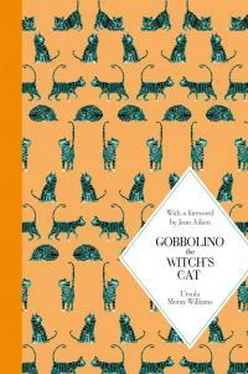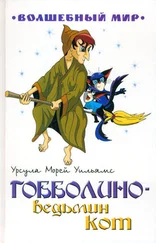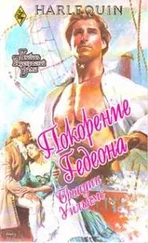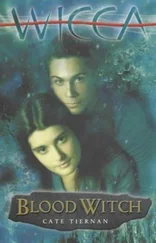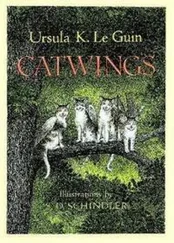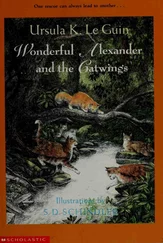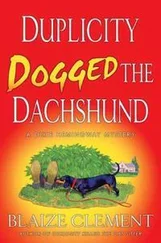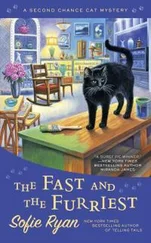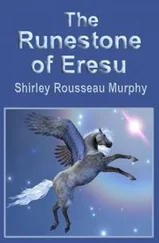“Don’t thank me!” said Sootica. “You are a disgrace to the family, and I never want to see your face again. But you are my blood brother after all, and I did not want to see you hurled down the mountainside.”
“But what will happen to you when you go back without me?” asked Gobbolino.
“Oh, pooh! I am far cleverer than my mistress the witch!” said Sootica scornfully. “She would never dare touch a hair of my head. Don’t you worry about me, brother, but make up your mind to be a better cat in future. But there! I suppose it is of no use telling you that as things are now!”
Gobbolino was rather mystified by her words, but he had little breath left for wondering what she was talking about. It was all he could do to cling to the broomstick without falling off as they rushed through the air. It was ten thousand times worse than anything he had ever done before.
“Oh, please stop, sister! Oh, please! Please! Please!” he begged, but Sootica paid no attention to him at all.
A little later he was terrified to hear her say:
“I am going to drop you now, brother. It is time I was returning home!”
“Oh, no! No! No! Sister! Whatever will become of me?” sobbed Gobbolino, but his sister only said:
“Don’t be foolish! Do as I tell you, and when I say ‘jump!’ leave go!”
“Oh, no!” sobbed Gobbolino, clinging all the faster. “I shall be killed, indeed I shall!”
“Nonsense!” said his little sister Sootica. “Even kitchen cats land on their feet, you know!”
The next moment she cried: “Jump!” and gave him a little push with her paw.
For one terrible moment Gobbolino clung wildly, and then he fell, down, down, down !
Gobbolino did not open his eyes as he fell, for he expected to be killed at any minute. He did not see his sister Sootica flying away on her broomstick back to the Hurricane Mountains, nor the green grass and brown farmland coming up to meet him as he fell, nor the winding river making its indolent way through the valleys and fields.
He did not even know there was a river, until with a terrible splash the water closed over his head, and then he bounced to the surface again in a flurry of bubbles.
“Oh, I’m drowning! I’m drowning!” cried Gobbolino, and he began to swim for his life.
But where as a witch’s kitten he had swum mile after mile as strongly as any little duck, now he found he could only struggle and splash, while the current carried him rapidly down towards the great mill-wheel waiting round the bend, beside the farmhouse.
It was lucky for Gobbolino that the children of the farm were playing on the bank just above the millrace.
“Look! Look!” they cried to one another. “Here comes a little cat swimming for its life!”
“It will get caught in the mill-wheel!” cried one of the little girls. “Quick! Quick! And get it out!”
Her brothers ran to get a stick, and fished out Gobbolino as they might have fished a plum out of one of their mother’s pies.
“Oh! Oh! Oh!” they all cried. “He is exactly like our little Gobbolino that came swimming down the river just like that, oh, ever so long ago!”
“Gobbolino swam!” said the boys. “And this cat wasn’t swimming!”
“Gobbolino’s coat was nearly black,” said the little girls. “And this one is quite tabby.”
“But he has three black paws and one white!” they all exclaimed together. “And just look at his beautiful blue eyes!”
Gobbolino looked at them and purred and rubbed his wet body against their legs. Now that he was really a kitchen cat he found he could not speak their language any longer, but he did not mind, for they were all putting their arms about his neck and calling him their dear, long-lost Gobbolino.
“Can you still blow sparks out of your ears, Gobbolino? Can you still become invisible? Can you hide in father’s shoe or in the baby’s rattle?”
Gobbolino shook his head, but they still hugged and petted him and carried him up to the farm, where the farmer’s wife threw up her hands to see him.
“Father! Father!” she exclaimed. “Just see what the children have found drowning in the millrace! It’s the witch’s kitten come back again!”
“Witches’ kittens swim, they don’t drown!” said the farmer, coming into the kitchen.
He took Gobbolino out of the children’s hands and looked at him very carefully while the children crowded anxiously about his knee.
“That’s no witch’s kitten!” he said at last. “That’s a common kitchen cat, that is!”
Gobbolino’s grateful purrs almost choked him, while the children sang and shouted for joy at their father’s words. Even the baby in the cradle – who was now sitting up and playing with a string of cotton reels – crowed with delight, so that the kitchen rang with gladness, and no one heard the sound of wheels outside until the door suddenly opened and in burst three boys, each a little bigger than the last, all shouting:
“We’ve come to spend the day! We’ve come to spend the day! We’ve come to spend the day!”
The next moment they had hurled them selves on the top of Gobbolino, exclaiming:
“Oh! Oh! Oh! It’s our dear, our darling, our sweet little long-lost Gobbolino! Oh where, oh where have you been? And why haven’t you come to see us before?”
It was none other than the three little brothers, who had come to spend the day with the farm-children, as they often did for the benefit of their health.
The Lord Mayor’s coach was even now rolling away from the door, while the baby, who had stayed outside to pick dandelions, was crawling over the lintel with angry cries at being the last to reach Gobbolino and hug him to death.
For the rest of that long, happy day the children and their long-lost friend played and gambolled about the farm, and when evening brought the Lord Mayor himself to collect the little brothers they knew that another morning would bring them back to their Gobbolino.
The farm-children, tired and hungry, trotted into the kitchen, where, beneath the trestle-table laden with good food, a saucer of cream awaited Gobbolino.
One by one the children went off to bed, the cradle creaked its lullaby, and the farmer’s wife washed the dishes.
“There are worse kitchens than this, Gobbolino, and worse homes than ours,” said the farmer, filling his pipe. “While there’s a fire on the hearth, there’s a place beside it for you, and a saucer of milk and a bit of fish on Sundays. Is that true, mother?”
“That’s true, father!” said the farmer’s wife, and Gobbolino purred his gratitude.
When the dishes were wiped and put away, the farmer’s wife sat in the rocking-chair gently pushing the cradle with her foot as she darned the stockings, and Gobbolino crept quietly into her lap and dozed there. He knew that he had found his home at last and for ever and ever. Nobody would turn him out again. The children would become boys and girls and men and women. The baby would grow up and rock its own baby to sleep in the wooden cradle. The farmer and his wife would grow old and watch their grandchildren and great-grandchildren toddle across the kitchen floor, and every one of them, from the oldest to the youngest born, would always have a friendly word and a place in his heart for Gobbolino the kitchen cat.
About the Author
When Ursula Moray Williams was a little girl, she and her twin sister Barbara were sent to bed so early that they used to tell each other stories to pass the time before they went to sleep. After their mother had taught them to read and write, they began to make books – writing new stories and illustrating them with coloured pictures – which they gave to each other at Christmas or on their birthday. They made these “anniversary books” every year until they were teenagers. When they grew up, Ursula became a writer and Barbara a painter, and they remained close – although Ursula lived in England and her sister in Iceland.
Читать дальше
